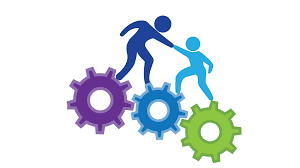Lisa Fine and Ellen Hunt recently hosted Melanie Sponholz, recently honored as Compliance Week’s 2024 Mentor of the Year, and Margarita Derelanko, Senior Director of Compliance at Ivy Rehab Physical Therapy, on an episode of the Great Women in Compliance podcast. They had a lively discussion about mentorship, featuring some of the most influential voices in our field. Melanie and Margarita share a mentor-mentee relationship that exemplifies the value of mutual growth and support in our profession.
Mentorship in compliance is more than just guidance; it’s a two-way street that fosters growth and learning for mentors and mentees. Melanie highlights this beautifully, noting that she knows as much from Margarita as Margarita does from her. This reciprocal relationship underscores a fundamental truth about mentoring: an ongoing exchange of knowledge, experience, and support.
Ellen echoed this sentiment, emphasizing the compliance community’s open, sharing nature. In a profession where continuous learning and adaptation are crucial, connecting, sharing, and learning from others is invaluable. Whether through LinkedIn connections, conferences, or casual conversations, every interaction holds the potential for growth and learning.
One of the most critical skills for any mentor is the ability to listen. Ellen stressed that understanding what the mentee needs is paramount. Whether they are seeking career advice, expertise in a specific area, or simply a supportive ear, a good mentor listens first and provides guidance tailored to those needs.
Margarita added that an impactful mentor must be fully present during interactions. This means dedicating undivided attention to the mentee and fostering deep, meaningful conversations that can lead to significant insights and growth. For mentees, being open-minded and receptive to feedback is equally important. Actual progress comes from incorporating the advice and perspectives shared by mentors.
Authenticity and confidence are foundational qualities that mentors should possess. Melanie highlighted the importance of mentors who are comfortable in their skin and genuinely interested in lifting others. This positive energy not only makes mentoring relationships more enjoyable but also more effective.
Lisa shared a personal reflection on the value of vulnerability in mentorship. Early in her career, she found it challenging to relate to mentors who always presented a perfect facade. Only when mentors began sharing their fears and failures did she realize everyone faces challenges. This openness fosters a deeper connection and gives mentees a more realistic view of their journeys.
In today’s interconnected world, mentorship doesn’t have to follow a traditional path. Margarita noted that mentors can be found in various ways, including blogs, newsletters, and virtual interactions. Compliance professionals like Kristy Grant-Hart and Amy Barnard Bahn, who frequently share their expertise online, serve as mentors to many without formal relationships.
This flexibility in mentorship avenues is a testament to the compliance community’s adaptability. Whether through structured programs or informal exchanges, the opportunities to learn and grow are abundant. Ellen related the value of building a diverse network of mentors, akin to having a “kitchen cabinet” of advisors for different aspects of one’s career and personal development.
For those seeking mentors, taking the initiative to reach out is crucial. Melanie encouraged professionals not to be bold and to ask for a virtual coffee or a quick chat. Specificity in your request—highlighting what you admire about their work and what you hope to discuss—can make the approach more effective. Most people in our field are willing to share their knowledge and experiences, especially when approached with genuine interest and respect.
Mentorship is also about fostering confidence. Margarita highlights how influential mentors can instill a sense of belief in their mentees, helping them recognize and harness their potential. This confidence is essential in a field like compliance, where the ability to stand firm in your decisions and actions can have significant implications.
Ellen iterated on the need for safe spaces in mentoring relationships. Whether you are navigating a difficult situation at work or seeking to improve your skills, having a mentor who provides honest feedback in a supportive manner is invaluable. These safe spaces allow growth without the fear of judgment, enabling mentees to tackle challenges head-on.
It is clear that mentorship in compliance is not just about passing down knowledge—it is about building relationships that foster mutual growth, support, and inspiration. Whether you’re a seasoned professional or just starting your career, there is immense value in seeking and providing mentorship.
The bottom line is you need to take action: reach out to someone who inspires you, whether it’s through LinkedIn, a professional network, or an email. Build your kitchen cabinet of mentors and be open to the diverse perspectives and experiences they bring. Remember, the compliance community thrives on collaboration and support; there is always room for one more connection.



